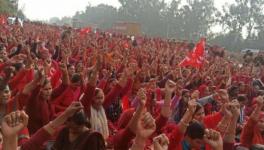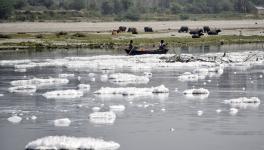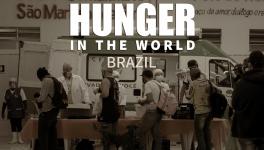Water For All: Alternative World Water Forum Calls for Ending Privatization of Water
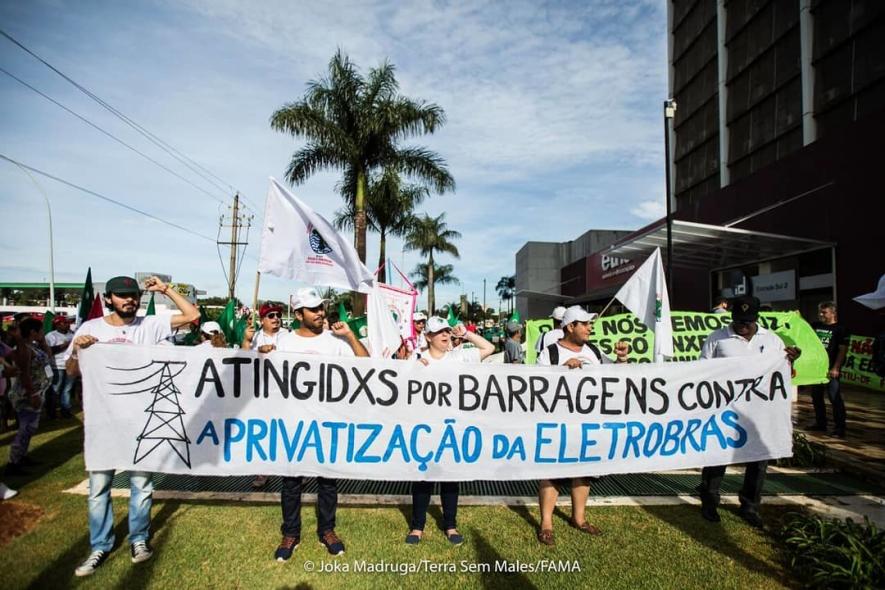
Image Courtesy: Joka Madruga / Terra Sem Males / FAMA
The Alternative World Water Forum (AWWF) took place in the capital of Brazil, Brasilia from March 17 to 22, parallel to the corporate transnational World Water Forum, which is funded and organized by corporations who seek to privatize primary water reserves across the world. Over 7,000 water protectors from organizations and communities from more than 38 countries participated in the AWWF to debate and discuss the current water crisis and how it is impacting vulnerable communities, unify forces to fight the privatization of water and collectively reaffirm and fight for clean water as a basic right for all.
Access to water is a class, race and gender issue
During the four days of panel discussions, working groups, cultural activities, plenary sessions and protest actions, the seven thousand participants delved deeply into the pressing questions that surround the issue of water. They recognized that access to water is not isolated from the broader questions of capitalism, the neoliberal economic model, racism, patriarchy, extractivism, and the corrupt political system.
The closing declaration of AWWF states that:
“We identify that the objective of the corporations is to exercise private control of water through privatization, mercantilization and exploitation concessions, making it a source of accumulation on a global scale, generating profits for transnational companies and the financial system. For this they are using diverse strategies that include the use of direct violence as well as forms of corporate capture of governments, parliaments, judiciaries, regulatory institutions, and other juridical-institutional structures to act in favor of the interests of capital. They are also waging an ideological war through the media, education and propaganda which seeks to create an ideological consensus against the common property of goods and in favor of their transformation into merchandise.
The people have been victims of this project of the corporations. Women, native people and communities, black populations, migrants and refugees, families of farmers and peasants and the urban communities living in peripheral areas are suffering directly from the attacks of capital and the social, environmental and cultural consequences of its actions.
In the territories they want to privatize there is currently inequality, racism, sexual violence and excessive burden of work for women, criminalization, assassinations, threats and persecution of leaders, mass layoffs, precarization of work, reduction and violation of rights, salary reduction, increase in exploitation, brutal restriction of access to water and public services, decrease in the quality of services for the population, absence of social control, abusive increases in prices, corruption, deforestation, contamination and poisoning of water, destruction of springs, rivers and violent attacks on people and their territories, especially the populations that resist the norms imposed by capital.”
AWWF in the streets
A fundamental part of the Forum were the street actions that targeted the corporations and institutions responsible for the current water crisis and environmental crisis. On March 20, 600 women from the Landless Rural Workers’ Movement (MST) occupied the headquarters of Nestle in São Lourenço, Minas Gerais the protest the deal being made between the Temer government and this corporation to privatize water resources.
Nestlé along with the transnational companies Coca-Cola, Ambev, Suez, Veolia, Brookfield (BRK Ambiental), Dow AgroSciences, Monsanto, Bayer, Yara, and the multilateral financial institutions like the World Bank, International Monetary Fund, was participating in the World Water Forum which the movements have renamed the “Forum of the Corporations”, devising strategies to advance in the privatization of important water sources and mercantilization this resource.
María Gomes de Oliveira, a member of the National Board of the MST denounced, “Imagine if you were obliged to buy bottles of all the water you drink in a day. Nobody would put up with that. That is what the companies want that are meeting right now in the Forum…They are not there to debate the management of anything, they are doing an auction to sell the country for the price of a plantain.”
On March 22, over 350 activists from MST, the Movement for People Affected by Dams, Popular Youth Uprising, and the Movement of Small Agriculturalists occupied the industrial park of Coca-Cola to continue their denouncement of the Forum of the Corporations and their insidious plans to buy up the natural resources of the country for their own profit.
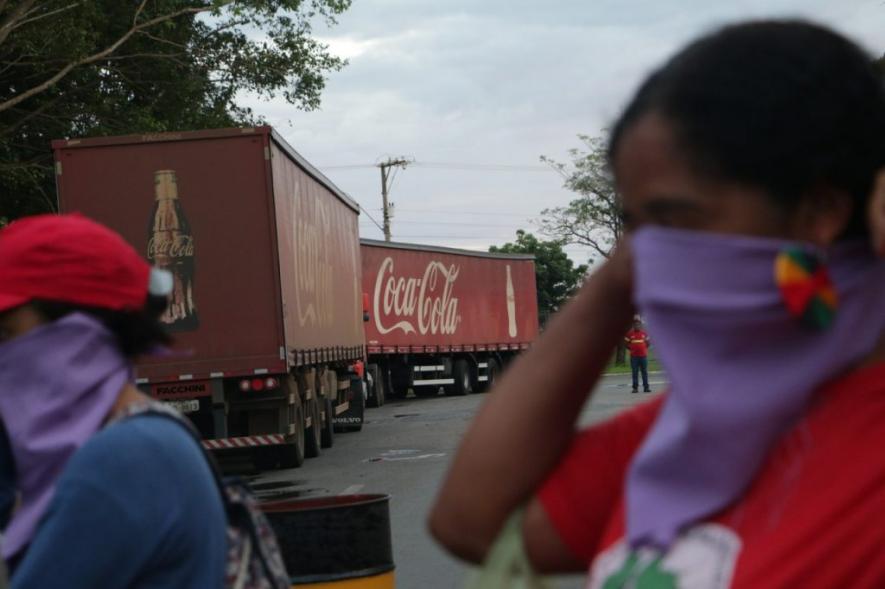
Around 700 participants of AWWF protested in front of Electrobras in Brasilia on March 21 to show their opposition to the privatization of the Brazilian electrical sector carried out by Michel Temer’s coup government.
José Josivaldo, member of the National Board of the Movement of People Affected by Dams stated, “We cannot accept that Brazilian patrimony is passed to the hands of the bankers and speculators.”
Day 0
This forum comes at a time when Cape Town, South Africa is preparing for “Day 0” when water will no longer flow freely from the taps, and people will be forced to line up at stations to receive their daily water allotment. Cape Town may be the first city to confront this crisis, but there are several other grand metropoles that are also at risk like Sao Paolo, Bangalore, Beijing, Cairo, Jakarta, Moscow and others.
Also Read: Water: The Warning Coming from South Africa
What is interesting in the discussions around the Cape Town water crisis is that the responsibility largely falls on the individual consumers and fails to take account for climate change and the privatization of water driven by large corporations.
For example, currently Coke and Nestlé are close to purchasing Guarani Aquifer, one of the world’s largest reserves of fresh water. Elliot Gabriel reported in Mint News that, “According to reports, talks to privatize the Guarani Aquifer – a vast subterranean water reserve lying beneath Argentina, Brazil, Paraguay, and Uruguay – have already reached an advanced stage. The deal would grant a consortium of U.S. and Europe-based conglomerates exclusive rights to the aquifer that would last over 100 years.”
If it goes through, this deal would have detrimental effects on the surrounding populations that are already suffering from water shortages and poses a dangerous precedent for the future of the world’s water resources.
Get the latest reports & analysis with people's perspective on Protests, movements & deep analytical videos, discussions of the current affairs in your Telegram app. Subscribe to NewsClick's Telegram channel & get Real-Time updates on stories, as they get published on our website.













